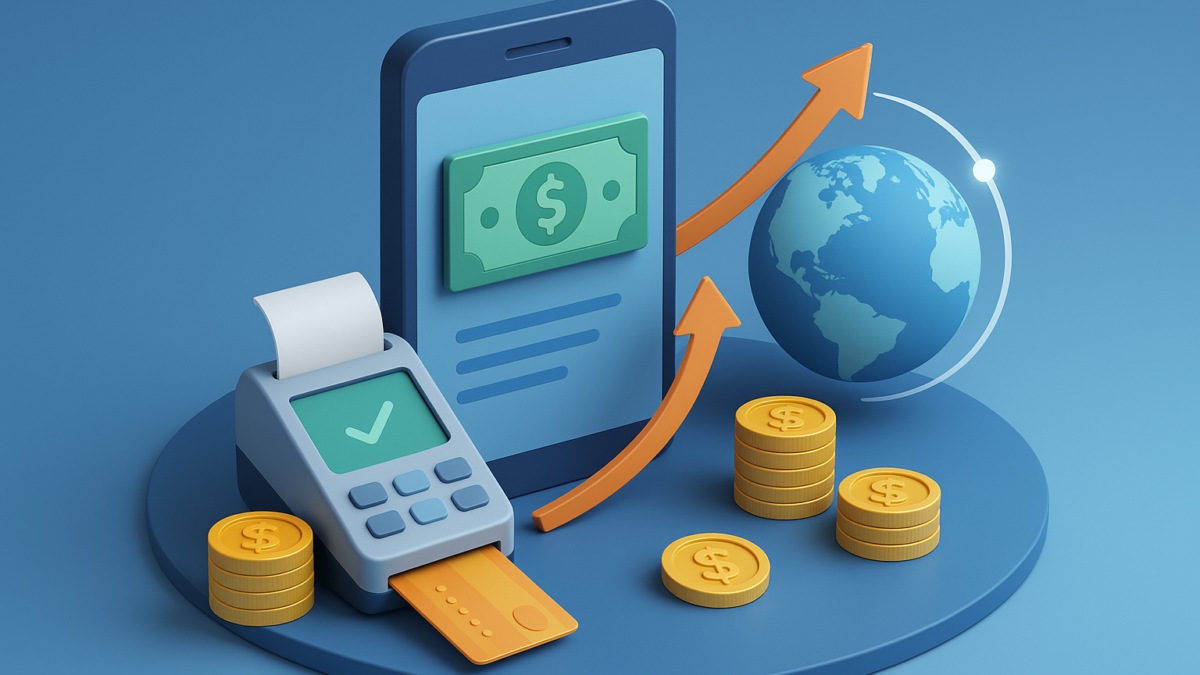Real-Time Payments: How Fintech Transforms Global Money Movement
FinTech Real-Time Payments: Accelerating Global Transfers
The way money moves around the world is changing faster than ever. In a time when customers expect speed, security, and convenience, real-time payments (RTP) have emerged as the new standard. Driven by FinTech innovation, these instant transaction systems are revolutionizing how consumers, businesses, and financial institutions exchange value — from paying bills to sending cross-border remittances.
But how exactly is FinTech making this possible, and what does it mean for the global financial ecosystem? Let’s explore how real-time payments are powering the next phase of digital finance.
The Shift from Batch to Real-Time: A Payments Revolution
Traditionally, transactions took hours — sometimes days — to process due to legacy banking systems. With real-time payment infrastructures, transfers now happen in seconds, 24/7.
FinTech companies have played a key role in bridging the gap between traditional banks and modern payment systems by introducing:
- API-driven integrations for seamless fund transfers
- Cloud-based payment networks offering scalability and speed
- AI-powered fraud detection for secure instant transactions
Platforms like UPI in India, FedNow in the U.S., and SEPA Instant in Europe are redefining expectations for both individuals and enterprises.
Why Real-Time Payments Matter in 2025
Real-time payments aren’t just a tech upgrade they’re an economic catalyst.
Here’s why they matter more than ever:
- Instant Cash Flow for Businesses – Enables faster settlement and liquidity management.
- Enhanced Customer Experience – Real-time transactions improve satisfaction and trust.
- Global Reach – FinTechs are breaking down borders, making cross-currency transfers instant.
- Financial Inclusion – Even users without traditional banking can now access digital payment tools.
- Reduced Operational Costs – Automating payments cuts down reconciliation time and manual errors.
In short, speed equals competitiveness in the 2025 financial landscape.
How FinTech Is Powering Real-Time Payment Systems
FinTech players are no longer just disruptors they’re enablers of financial infrastructure.
Key innovations include:
- Blockchain-Based Settlements: Cryptographic validation enables real-time, transparent transactions without intermediaries.
- AI & Predictive Analytics: Detect anomalies in milliseconds, ensuring transaction safety.
- API Economy: Open banking APIs let third-party providers connect seamlessly with banks to process real-time payments.
- Digital Wallets & Super Apps: Apps like Paytm, Revolut, and Cash App integrate RTP features to enable one-tap global transfers.
By combining speed, security, and intelligence, FinTech companies are setting new benchmarks for efficiency and trust in payments.
Cross-Border Real-Time Payments: The Next Frontier
While domestic RTP systems are thriving, cross-border payments remain the next big challenge. Traditional systems like SWIFT are being augmented with FinTech-driven alternatives such as:
- RippleNet, using blockchain for instant settlements.
- Visa Direct and Mastercard Send, connecting global networks in real time.
- Wise (formerly TransferWise), leveraging APIs for transparent international payments.
These innovations reduce dependency on intermediaries, cut fees, and accelerate settlement times across continents.
Challenges on the Road Ahead
Despite rapid progress, real-time payments face hurdles like:
- Regulatory fragmentation across countries
- Cybersecurity and data privacy concerns
- Interoperability issues between payment networks
- Legacy system integration for traditional banks
However, with growing FinTech–bank collaborations and standardized global protocols, the future of instant payments looks promising.
The Future: A World That Moves at the Speed of Money
By 2030, experts predict that real-time payments will account for over 50% of global transactions. This shift won’t just impact banks — it will redefine commerce, trade, and financial access.
FinTech innovation will continue to make transactions faster, cheaper, and more intelligent, aligning with consumer expectations of a world where everything — from content to commerce — happens instantly.
Conclusion
Real-time payments represent FinTech’s most impactful contribution to the financial world. They bridge continents, boost inclusion, and empower economies to move in sync with technology. As businesses and consumers continue to demand immediacy, FinTech will ensure that money moves as fast as thought.
Want to deliver personalized experiences that truly resonate with your audience?
Discover how iTMunch’s B2B Content Syndication Services can amplify your brand reach through intelligent distribution and audience targeting — powered by data, AI, and design innovation.





